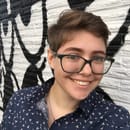By the end of the first day, there was furniture. By the end of the second, a miniature library, with selections including Angela Davis, bell hooks, and W.E.B DuBois. By the end of the third? Hot pasta with marinara sauce for dinner, for free and in abundance.
This may not be communism as it has been historically represented in global politics. But in the occupied New School cafeteria, it is the only kind of communism present: the kind that uplifts communality and embraces the value of everyone present, beyond merely their labor capabilities.
Following an email sent out in March of 2018 by New School president David Van Zandt, announcing the termination of TNS’s contract with the current food provider, Chartwells, and the impending mass layoffs of the cafeteria workers employed by it, students (led by the New School’s Communist Student Group) took to the cafeteria space in the University Center itself to express their anger and indignation with the administration and are, at the time of writing, four days into their occupation of the space. Due to necessity, organization has happened quickly. Already in the cafeteria, people have made temporary beds out of air mattresses, couches, chairs, and sleeping bags. Furniture has been brought in from the University Center faculty lounge, and students have carted in blankets, pillows, and all sorts of overnight essentials.
In addition, however, care has been taken to provide for everyone. Using Venmo donations from sympathetic outsiders unable to physically occupy, students have been providing toothbrushes, floss, and gum, as well as food, water, and coffee, with plans to begin purchasing eye masks and earplugs for those who stay overnight and may need them. Several committees have already been set up, including a food committee, responsible for the provision of meals and the planning of menus; a cleaning committee, responsible for deep cleaning and mopping the main area while everyone does their best to maintain a clean space; and a coordinating committee, made up of different members of other committees and shouldering the responsibility of making sure everyone is kept up to date on any new developments.
This is not the first time an occupation has begun to develop into a self-sustaining community. In 2011, Occupy Wall Street set up similar operations in Zuccotti Park, establishing spaces for sleeping, for food donations, for volunteering to help with sanitation, and for any medical needs that might arise. Utilizing and respecting everyone’s individual capacity for labor, Occupy Wall Street turned a simple Lower Manhattan park into a space of community and equitable divisions of labor. In 2015, students of the London School of Economics took over a central administration space, protesting the marketization of higher education, and turned it into “a hub for political discussion and debate, with workshops run throughout the day.” It is arguable, in fact, that occupations have to be self-sustaining in order to succeed: when spaces are filled with trash, for example, that can in turn attract vermin, which throws a serious wrench in the ability to occupy.
In addition, when it comes to occupations of schools and universities, one of the lesser-spoken aspects is the need to be above reproach on all accounts. When anger and indignation turn into action against an administration, along with everything else is the need of the students to prove their claims—that they do have solutions to the problems they are protesting, and that they can demonstrate that those solutions work better than those proposed by the administration.
In the cafeteria, so far, that appears to be working well. With practical committees already established, and with some talk of setting up workshops and readings of progressive texts, the occupants have certainly demonstrated their collective ability to live and work together while still organizing rallies and establishing a social media presence (maintained meticulously by a media committee as well as a few members of the Communist Student Group).
At the time of writing, it is the morning of May 4th. The sun is rising, and a new day is beginning. The food committee is already hard at work putting breakfast together—and so does a new day of struggle, protest, and hard work begin, in this new hub of communal living and political development.
Want updates on the occupation? Follow on Instagram @occupy_tns; on Facebook in The Occupied New School Cafeteria; and on Twitter @occupy_tns
[Feature and first images by author; second image sourced from New York Times]



